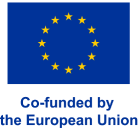Added Value from Sustainable Energy Business (ARVO)
Funders










Project information
Project duration
-
Funded by
European Structural Funds - European Regional Development Fund (ERDF)
Project funder
Funding amount
900 005 EUR
Project coordinator
University of Oulu
Unit and faculty
Contact information
Project leader
- Research Director, Sustainable Energy Business
Contact person
- Research Director, Sustainable Energy Business+358505985341
Researchers
Project description
The Finnish national climate and energy strategy emphasizes the green transition and moving away from Russian fossil fuels. At the core of the strategy are the electrification of the energy system, utilization of system integration, and promotion of the hydrogen economy and electrofuels. Finland’s strength is seen in its role as a provider of new technology. The strategy aims to attract investment, jobs, and economic growth, to use natural resources sustainably, and to strengthen security of supply and self-sufficiency.
The increase in green transition investments and the debate on Finland’s role as an energy producer have raised concerns about whether added value will remain in the production regions. Understanding the mechanisms behind value creation is crucial for the acceptance of projects and for the success of regions. Investments must ensure that value remains locally, benefiting regions, actors, and residents.
The goal of the ARVO project is to ensure that green transition investments take root in regional ecosystems, producing added value and new growth business. The project is implemented in a pilot region, but its results will serve all areas of Finland.
Key themes of the project:
- Economic impacts and business-added value for the region
- Impacts on local industry
- Participation of SMEs
- Regional distribution
- Employment effects
- Impacts on dimensions of sustainable development
- Political and institutional environment
- Trade and investment
The project will produce knowledge on how added value is created, its regional factors, and related entrepreneurship, as well as build networks to secure continuity of activities.
Project results
The project will create diverse knowledge and concrete tools that enable global value chains to be connected to regional development and vitality. The aim is to strengthen especially the operating environment of micro and small enterprises and to develop practices that support sustainable economic growth at the local level.
Several concrete results will be achieved through different work packages. One key result is the development of mechanisms for managing value distribution in ways that support sustainable and balanced interaction between stakeholders. This will promote dialogue, knowledge sharing, and socially sustainable decision-making.
The project will also identify key factors influencing regional added value. For this purpose, detailed GIS-based development analysis will be used, examining, for example, the location of jobs, turnover, and regional structures. As one practical solution, a logistics model for planning hydrogen and wind power infrastructure will be developed. The model will enable evaluation of investment profitability and feasibility in different scenarios, considering both costs and environmental impacts.
In its international component, the project will produce a literature review on entrepreneurship generated by large projects and a benchmarking comparison of best practices in Denmark and Norway. Based on this, an understanding will be formed of how large-scale projects can generate local entrepreneurship and added value.
Outputs will also include an online handbook and knowledge base combining value chain analyses, regional data, and entrepreneurship reviews. This will provide accessible and practical knowledge for regional businesses, developers, and educators.
The ARVO project will also build a project portfolio to strengthen the research group’s future activities in selected focus areas. At the same time, new research needs will be identified, and funding applications launched to ensure continuity of activities after the project ends.
The impact of the project will be ensured through an effective partner network and systematic, quantitatively and qualitatively goal-oriented communication. Overall, the project will achieve its objectives and lay a strong foundation for future development and research activities.